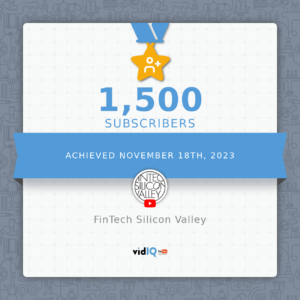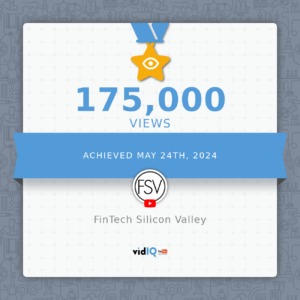
Duncan Davidson Founding Partner Bullpen Capital, the pioneer of Post Seed investing. Previously, two bubble era IPOs (InterTrust and Covad) and two other startups (SkyPilot and Xumii, the first mobile cloud app). Being the pitch person on one of them at the peak of the bubble, I learned firsthand that venture capital is a cyclical business. During the
bubble, speed matters; during the downturn, two successful strategies: long-term, deep tech; and short-term, value investing in oversold but otherwise solid companies. Bullpen was crafter for both bull and bear markets. The key: help the companies succeed, not focus on the deal.
Duncan Davidson Founding Partner Bullpen Capital, the pioneer of Post Seed investing. Previously, two bubble era IPOs (InterTrust and Covad) and two other startups (SkyPilot and Xumii, the first mobile cloud app). Being the pitch person on one of them at the peak of the bubble, I learned firsthand that venture capital is a cyclical business. During the bubble, speed matters; during the downturn, two successful strategies: long-term, deep tech; and short-term, value investing in oversold but otherwise solid companies. Bullpen was crafter for both bull and bear markets. The key: help the companies succeed, not focus on the deal.

Transcription
PEMO: Okay. Duncan, welcome. So good to hear your voice again. I was wondering how things are going there. With the crisis and the self isolation.
DUNCAN: Well, I’ve heard all these zoom jokes. I’m trying to spread the meme. I’m in the zoom where it happens for those watch Hamilton
PEMO: And and previous to this you were becoming a television star in Australia. I heard.
DUNCAN: Yeah, I went, I was sent down there slowing down to be the last episode in something called River Pitch so that the people behind the Shark Tank Australia started River Pitch and I was in the final episode and they wanted some Mark Cuban type to make fun of the founders. But I liked all the founders. I was actually trying to be very encouraging and nice to them. So I probably didn’t check the model.
PEMO: Yeah, you weren’t an asshole enough.
DUNCAN: That’s exactly right. I think these people with their hearts into doing something and I want to give them a reasonably good advice. In some cases it could have been go get a real job, but the cases they had separately hit your thing opportunities. So,
PEMO: Oh, that’s so great. Well, thanks for your contribution to the Australia Ozzy startup ecosystem. So I was wondering if you want to just briefly tell me what your main focus is on investments and and how that is affecting what’s happening at the moment.
DUNCAN: Well, Bullpen Capital is post seed. Our whole strategy is after a seed round, we will do a top off round, so to speak. It might be three to 5 million to try to set up an a round. Now the, the thinking here is the, a rounds today are B rounds of 10 years ago, right? So the stats are actually clear. A around 10 years ago it was 5 million beat around us. 15. Today the seed rounds in Toto are 5 million and the eight rounds are 15. So everything shifted out one more level. So our insight was given that phenomenon, how do you set up a $15 million round? Why play for five or seven when you could play for 15? So that’s, that’s how bullpen was started. Right.
PEMO: And how, how has the current crisis affecting your investments at the moment?
DUNCAN: There’s a huge irony here. We started Bullpen as a bare market fund, right? Because we started thinking of it, Oh nine and 10 and so the theory of post seed is you come in, you almost like a value investor, you get a very good value when you’re doing something essential, you roll your sleeves up to really help the company. We do a lot of hands on work with the founders and you get the big a, well it turns out that’s a bear market strategy and a bear market valuations drop the SIF to get to the next round as much finer, fewer people make it. The companies need a lot help how to handle a downturn and how to restructure a company. So we do all that.
PEMO: So it’s sort of perfect for what’s happening now.
DUNCAN: Right. It fell into our laps. We were actually were kind of surprised we went through our whole portfolio before the crisis yet actually we started doing it early March, then first looked at reserves and we did triage and then when the crisis hit we were good to go.
PEMO: How amazing. That’s like so forward thinking of you guys.
DUNCAN: There’s an article in Business Insider, actually three parts where I explained this whole process, but the key to it is to create something we call a default alive plan where you cut back enough, you change what you do, you pull back in your ambitions, but you get to positive cash flow or you get out far enough with enough metrics, you get to the next round in a bull market, everything’s momentum. Okay, we did a really, really high price seed round. Let’s get a high price day round in a bear market. It turns on its head. We were surprised how resilient our portfolio was. Many, many more companies could follow a default alive plan than we had thought, but that’s kind of a sidelight of doing post seed in a bull market. You still try to be very cash conscious. You don’t want companies that have raised too much money. You want the burn rate to be relatively lean. And when you do all of that, the companies are not to be resilient.
PEMO: That’s fantastic. And so reassuring. Do you envision investing this year as you would have last year or, or your expectation of this year before the crisis came?
DUNCAN: Well, we’ve been investing at a pace of roughly one a month and maybe who’s December cause it’s December and you lose July, August cause you’re on vacation. But 10, 12 a year has been our pace. We slowed down a bit in part to see how the crisis would shake out, but where we just put a term sheet out so we might’ve missed one month, I might’ve missed April, maybe two months when the dust settles. And we’re planning to keep on going at about one a month until the end of our current fund fund four and then we’ll flip over to fund five.
PEMO: Well that’s good work you guys. And what do you think as far as the overall investing in Silicon Valley at the moment, do you think that investors are continuing on as they have done and as their expectation was? Or do you think that they, like you have sort of slowed down to see what’s going to happen?
DUNCAN: Well, almost every VC publicly says we’re still in business, but almost no VCs were doing new deals. They were sort of filling out the deals that had already been in their pipeline. But, but having said that, there are still other people more aggressive than we are that have been doing a fully remote and talking about it, meaning they never meet the team. It’s all on zoom, zoom deal. So there, there’s some VCs are still out there, but I would conjecture that the data will show that the pace has dropped to about half what it used to be. Hmm.
PEMO: And do you think that doing remote or virtual introductions to companies and, you know, seeing the potential, do you think that’s viable and doable now moving forward? Because a lot of investors that I’ve spoken to already have said that, you know, that basically that that’s what it’s looking like more of a virtual environment as regards
DUNCAN: Investment. Well, I think we’re thinking like in California we will start phase two, phase three. I would say by July 4th independence day, we are potentially back to normal. I say potentially because human behavior might say skittish for awhile. While, just give you an analogy, I was here in 89 when the earthquake hit the big one right at the start of the Oakland, a San Francisco science world series game, which is funny to think about and I remember we used, we, I worked in a high rise in San Francisco and every time the elevator would go by and the floor would kind of jiggle over on a high floor, we’d all look at each other like, is this another one? And it took about a year for that little sort of ticklish sense in the back of your head. Oh my God. To go away. I think what’s going to happen here is as of July 4th of July, we could go back to normal, but we probably will won’t. We’ll still kind of be skiddish and it may take another year before or nine months for people feel really comfortable going back to where it used to be, any of the case, the consequences, the venture industry has to learn how to invest remotely without meeting the team. Yeah. Yeah.
PEMO: And you’ve got a very positive take on it. Because I know I just posted an article this morning that China has quarantined 109 million people because it’s been another outbreak there. So and a lot of the VCs I’ve been speaking to have said that you know, they’re not going to travel that they’ll be doing a lot of work remotely. You know, that the risk is just too great until they find a cure for this virus.
DUNCAN: Yeah. I can’t, who can project that? I think both sides have a reasonable viewpoint. Okay. it just, you know, we’re not going to keep the whole economy bottled up until we have a vaccine that is foolish thinking it may never be in vaccine. Vaccines are hard and the virus viruses are, are clever, agile, they mutate. But yeah, they have a better survival rate than us humans. Yeah, they do. But we’re already seeing a lot of people around the country rebelling against a lockdown and falling off to, it’s in. The lockdown is already breaking down. So I think on the one hand, the lockdown itself go away by July 4th, but on the other hand, as I said, people will behave more cautiously. Yes. skittish yes, that makes sense. Yeah. So that’ll continue. So then the question is can you really do venture with fully remote?
DUNCAN: You would think at some point in the food chain somebody has got to meet the team. Now maybe post seed is kind of interesting stage in that we always look for certain markers like good investors before us and buy good, not necessarily brand name, but we know them well enough to know they’ve done their homework on the deal and that gives you comfort. But if you have a deal that comes in, there’s nobody’s done sort of that check. Well you probably have to be the fun to do that check and whether you’re wearing mask or not meet the people.
PEMO: Yeah. Okay. Tentatively. And what do you what would your, your advice to startups at the moment who are looking for funding be?
DUNCAN: That’s a great question. I thought a lot about that question before this call because the most important part of the call and they’re all going to hear things like some of the greatest companies started in a downturn, which is true, but let’s take a look. Let me give you a context. This isn’t like 2000 when the bubble burst and I was there when the bubble burst in 2000 people had doubts about the internet. It sounds crazy today, but the internet is not real. I think people felt about the internet in 2001 like we feel about blockchain today. It didn’t feel real, but of course it was huge, bigger name, but that’s about the whole market and that made people slow to invest in 2008 we thought the financial system would melt down. The doubts were about that not technology in this time, nobody has any real doubts about the value of the technology.
DUNCAN: In fact, if you look at the S&P, the fangs sometimes call them fam. NGOs are the only stocks driving the whole growth in that stock market. Their tech is the only sector now producing real alpha in the marketplace. So there’s not just no doubt that it’s real. It’s actually where the money wants to go. Totally different than a 2000 and 2008 got it. So as a consequence of that, I think we’re going to see a unique pattern here. I sometimes try to call it a square root sign. Everybody’s got a letter, write a V, a U, a w, some crazy letter. Somebody came up with swoosh like a Nike swoosh, but I call it a square root sign, a sharp drop, look at the sign, sharp drop, and then a V recovery, but not all the way. And then a slower sort of flat period for about nine months.
DUNCAN: So we get back to where we were. Okay, whatever. If you can visualize it, maybe it’s a bad, it’s not a letter. I just want to pick something. It wasn’t a letter. So I can, and I think the balance is going to happen pretty quickly. For example, in China, the biggest balance right away where cars, why nobody in China wants to commute on a railroad anymore. They’re all buying cars like crazy. I think the auto industry might do very well over the next three or four months. We have to decide whether we’re commuting or not. A lot of people can really work remotely, but those that are committing will probably buy us to drive the car and then take a train. So cars may bounce. Things like that will create the bottom of the V for the venture side. I think what this means is for startups, you’re probably got a two quarter reset we’re living through and then things will begin to get interesting.
DUNCAN: So let me explain that in more detail. You want to be, let’s say you’re a SAS company and the rules are triple, triple, double, double grow by three. Basically get to 10 million ARR in two years. That’s a triple, triple and then go 20, 40, 60 or 80 70. So grow like that coming out of the 10 million range. ARR, triple, triple, double, double, double. All right. It’s hard to triple when everything fell apart. So those companies get a one or two quarter reset. If you survive this next two quarters, if you grow one X two X, it’s okay. Nobody’s going to hold it against you. It’s how you come out of it that matters. So you get like a reset for two quarters. Now for startups, if you’re already in the market, I’ll give you some advice. If you’re not in the market, I’ll give you other advice.
DUNCAN: If you’re in the market, this is the greatest thing for you in your time as a startup because the reset means you can now do the company you should have done. Most founders figure out things that would have done differently, things they would have added, but they got caught up in the rush to get to the next round and get venture money and the expectations of venture people so they sub optimize the real opportunity. You have a chance to reset, take it, really think through what you should have done and do it and you got two quarters to build the technology and get poised to do it. This is a freedom you’ll never get. Some companies got it in 2008 and took advantage of it. You got that reset card, play it. Okay. And then the messages will judge you and how you come out of it, how fast you grow coming out of the reset, not how you grew during the reset.
DUNCAN: And if they’re not in the market, what’s your advice? Well, what happens? What’s happening now is kind of a triaged across all ecosystem. So the really hot companies, especially ones like zoom that are surging in the covert world are everyone wants to put money in. And then the pretty good companies, some may not be surging, but they are very solid businesses. People put money in the ones I’ll call fliers, not quite the top tier, not even the middle tier, but interesting. Forget them. They’re not going to get funded. So it’s like the top companies get a lot of money. The ones in the middle still get funded. The bottom third, forget about it, bottom half, forget about it. So the number of startups that get funded I think is kind of shrink. I think it already has halved. It may expand a bit in Q four Q1 but it’s not going to expand to where it was.
DUNCAN: So the sieve to get through to be one of those startups to get the money is now much harder. Okay. Is this bad news? Not really. If you look at the most startups, they’re derivative. There’s some tweak on an idea somebody else has. So if you haven’t started a company, use the reset time to think through a bolder, more ambitious, more groundbreaking idea. It’s easy to say that, but people tend not to do that. They tend to do derivative products that are tweaked here. Tweak their 10% better. No, go for a hundred percent better. This is your chance. Yeah. Yeah.
PEMO: Real opportunity for sure. As well as the challenges.
DUNCAN: And let me give you a concrete example. Remote work is fascinating. Remote education, everybody gets half. How do you manage remote workers? Well, you can have dashboards and things like that, but dashboards are historical data. They’re not real time. Right? Wouldn’t you rather have a real time console? You’re the sales manager, you know immediately what meetings are being set up. It’s all remote. Who’s talking to whom? Who’s in their funnel, who’s scheduled, who isn’t scheduled? How did the meeting go with, you’ve got all this at your fingertips, right? So across the world of remote work, remote education, remote, this and that, think about the remote console to manage for the manager level because if the future is remote, then the future supervisors, managers are going to live in a console and that’s how they’re going to manage the, can’t walk down the floor, take that type of thinking and apply it to other markets. That’s just a particularly obvious one I think. But a lot of people haven’t thought it through that way. They still want to do analytics and a dashboard, no, do a console that’s real time and let people manage their far-flung workforce that way. Fantastic. Great advice. Yeah.
PEMO: And personally, Duncan, what have you taken out of this crisis in, obviously we’ve all had a lot of time to reflect and not be distracted by the noise out there.
DUNCAN: Well, I take in two, two big lessons out of this. So one of these are sort of prediction type of lessons. I think the trends are just accelerating, but everything I’ve spoken about is really been a trend that was already occurring. Okay. Like the, the number of startups peaked in 2015 it’s been going downhill ever since. Just kind of accelerate, money’s rotating to the later stage, mega rounds that’ll accelerate and so forth. So the first thing is assume you get two quarters of a reset and then an acceleration of prior trends. But here’s the other thing that’s going on. The boom we were in, which really started with the iPhone, let’s, let’s say it’s a got going in 2010, 2011 is mature. It matured several years ago. How many new iPhone apps have people gotten excited about? Not very many. It just, it’s a mature boom and one thing Colbert is going to do is accelerate the next boom.
DUNCAN: If you think about it, everybody’s still doing startups and the old phase, it kind of clogs up the pipeline for the new stuff they don’t get looked at. They’re not thought of as as interesting. When you sort of clean out the pipeline, you open up VC vision to what’s the new stuff truly new and a lot of people say the next big wave is so-called fourth industrial revolution, highfalutin words. If it’s true, it’s going to be huge. It’s going to be bigger than what we just went through. It’ll be more like what happened in the nineties and what happened in the in the teens, so I happen to believe they’re right, whether it’s the fourth industrial revolution or some other name doesn’t matter, but this is self-driving things. AI empowered is robotics, but I’ll put a more general word on it. It’s the reindustrialization of the Western world.
DUNCAN: We’re going to re industrialize and the world’s going to look so different. I mean, if we have all these cars commuting and then they become self-driving man, you free up a lot of time that’s now stuck in a traffic jam. Yeah. If we have more like micro mobility devices that are electric and more pleasant and they’re not spewing out fumes and all that, it’s going to be a better world. I can go down through a whole list of stuff, but I think the world is going to move quicker to the next range of deals to do. So. The other advice is think through what this reindustrialization of the Western world means and there’ll be a terrific number of opportunities there that are simply not visible today. Cause we’re all thinking of Uber and I phones and apps and cloud and stuff for the past boom, not the future. Boom.
PEMO: Wow. Thank you so much. It always neat, Duncan, when we speak and I really appreciate it and I’m sure all the listeners will too. Thank you so much for your time today and I’m wishing you and your family all the best until this crisis sort of finishes. Yeah. Look, and thank you very much and I love what you do and I’m so glad to be part of it. So just whenever you need me to do one of these things, just let me know. You’re very kind. Thanks again and stay safe and well, take care. Bye. Bye.













